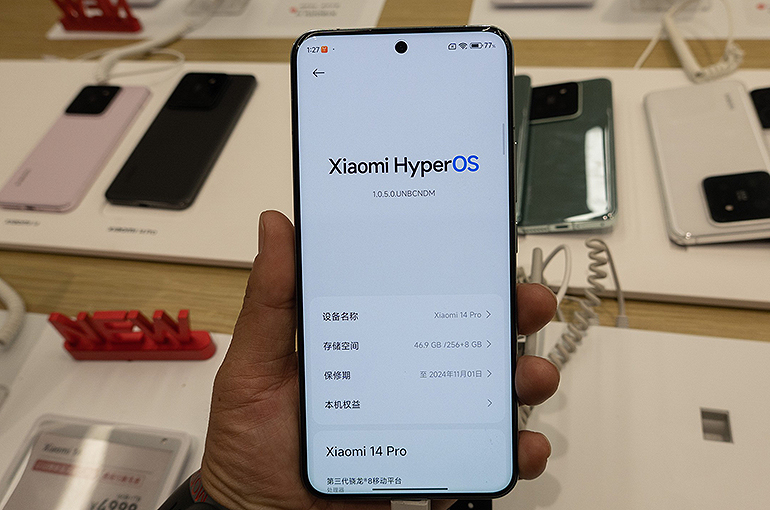 China’s Xiaomi Unveils Key Features of HyperOS Architecture
China’s Xiaomi Unveils Key Features of HyperOS Architecture(Yicai) Dec. 8 -- Xiaomi held a conference to present its new operating system HyperOS, which is set to shift the focus of the Chinese smartphone giant to connecting handsets, cars, and smart home appliances to enhance the interactive experience.
HyperOS’s kernel is a combination of Linux and Xiaomi Vela, Jin Fan, vice president of the Beijing-based company’s mobile phone department, said at the event yesterday.
Xiaomi Vela is an internet of things software platform based on the open-source embedded operating system NuttX, which has been running on several Xiaomi smart home products.
Xiaomi incorporated the service framework of Android and Vela, while creating eight sub-systems, including an artificial intelligence sub-system, which integrates AI model capabilities, Jin explained.
Top-level layer HyperConnect breaks down the barriers between hardware, allowing all devices to have a unified connection protocol and communicate in real-time, ultimately building a ‘human-vehicle-home ecosystem.’
Moreover, Xiaomi created a full-end security system running through the kernel, the service framework, and HyperConnect that can ensure that security is realized from the lowest level.
Xiaomi mainly rewrote the underlying layer based on the Android system and then added the compatibility of embedded systems without changing its core, Ivan Lam, senior analyst at Counterpoint, told Yicai. Thanks to the rewrite of the underlying layer, other products will pair and interact more smoothly with the systems.
Xiaomi’s Chairman and Chief Executive Lei Jun first announced HyperOS on Oct. 26.
Other Chinese manufacturers, such as Huawei Technologies, Vivo Communication Technology, and Oppo Mobile Telecommunications, are also developing their own systems.
In the context of increasing hardware homogenization, there is a need to improve human interaction and user experience through software, Lam said, adding that having a self-developed operating system is more convenient for in-depth customization and can also open a better channel for the introduction of AI.
Editor: Futura Costaglione